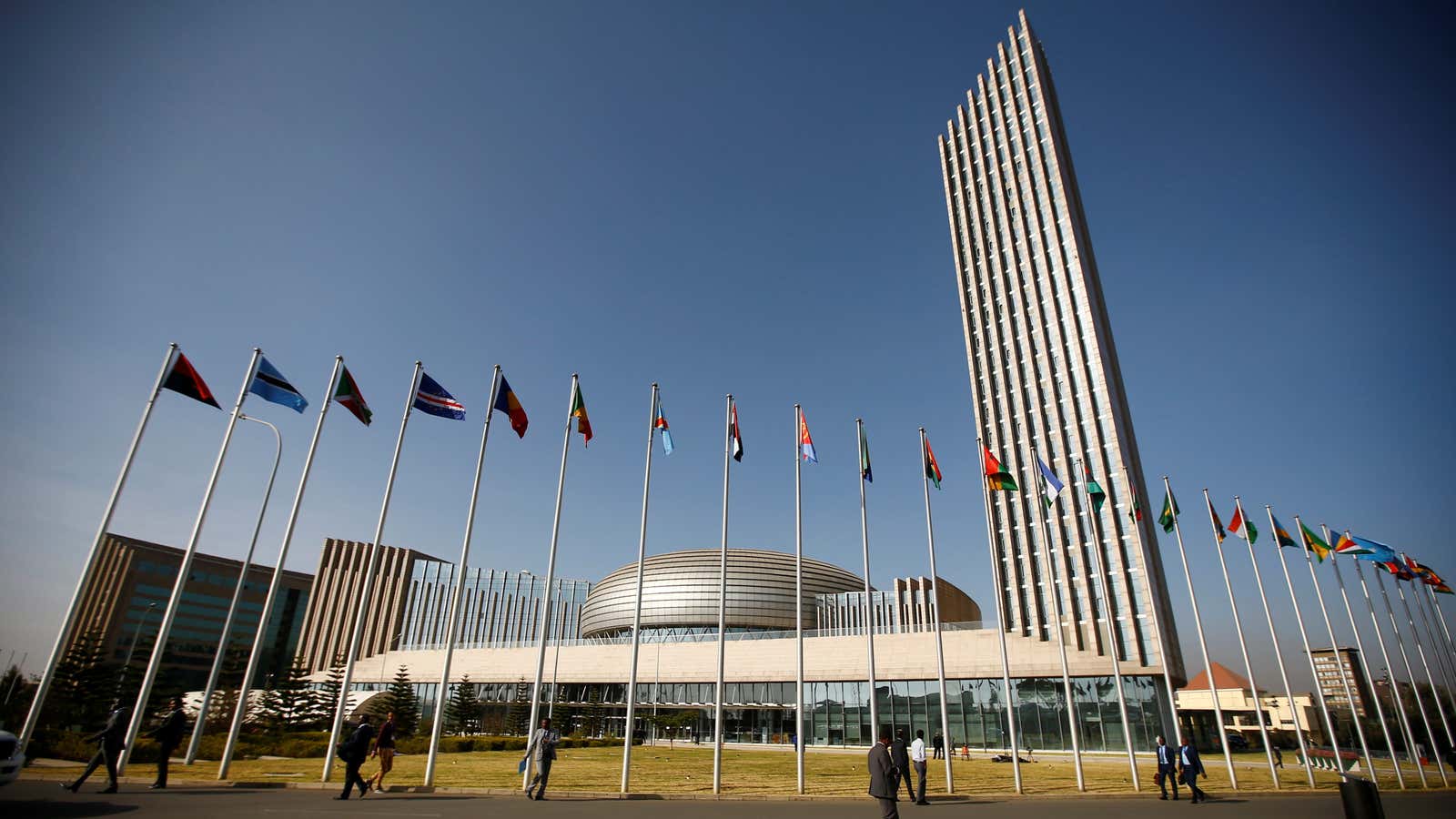Over the last few weeks, rumors—and then a few stories—have emerged that the long-expected implementation of the Africa Continental Free Trade Area (AfCFTA) agreement due on July 1 would be delayed for up to a year while the continent deals with an unprecedented economic crisis in the wake of the Covid-19 pandemic.
While the African Union hasn’t formally confirmed any intention to pause their plans, it hasn’t seemed totally unrealistic this would be under consideration during such unprecedented times.
AfCFTA, which was ratified by enough African countries last year, created the world’s largest free trade zone with a combined GDP of $3.3 trillion. Dropping trade barriers between African countries would boost trade on the continent by over 50%, according to some estimates. Others believe it would double intra-continental trade in Africa.
But even with all the practical concerns around a pandemic which is not believed to have peaked yet on the continent, many long time supporters do not believe now is the time to delay the AfCFTA’s implementation—they argue the opposite.
“The Continental Free Trade Agreement can be one of the most important tools of our economic recovery,” says Paulo Gomes, a former World Bank executive director and chair of the executive committee of AfroChampions, an African Union-mandated network to coordinate private sector discussions around AfCFTA. “If I’m an African finance minister I don’t have quantitative easing and the money printing money tools of the wealthier economies—trade can be our stimulus.”
For Gomes and others this isn’t simply about intra-African trade for the sake of it but better, intentionally structured regional integration as a way to enhance national and sub-regional economies.
“The private sector is the biggest beneficiary of AfCFTA and with supply chains being disrupted globally, it is even more urgent that we have a functioning system within the continent to create continental supply chains,” AfroChampions wrote in a letter to African ministers to discourage delaying implementation.
The second Africa Regional Integration Index (2019) published last week reveals the continent’s low integration average score of just 0.327 out of 1. The index, backed by the AU, the UN Economic Commission for Africa and the African Development Bank, measures regional integration through the lens of productive, infrastructure, trade, free movement of people and macroeconomic integration.
The index report says Africa is still particularly “poorly integrated on the productive and infrastructural dimensions, which are key aspects forming the foundations upon which the other dimensions of regional integration depend to function.”
By these metrics, South Africa is Africa’s most regionally integrated country because it outperforms on productive and infrastructure integration. But it underperforms on the free movement of people. However its index score of just 0.625, is way ahead of the second best country Kenya (0.444) and third Rwanda (0.434). The worst integrated countries are South Sudan and Eritrea doing poorly on almost every measure.
Among the eight regional economic communities, the East Africa Community was seen as the best integrated while Southern Africa Development Community was seen as the least integrated.
While an AfCFTA delay still seems likely if only for practical logistical reasons, people familiar with the discussions say ministers are still negotiating and hoping for a compromise to be agreed to enable a multi-part implementation to start this year.
Sign up to the Quartz Africa Weekly Brief here for news and analysis on African business, tech and innovation in your inbox
